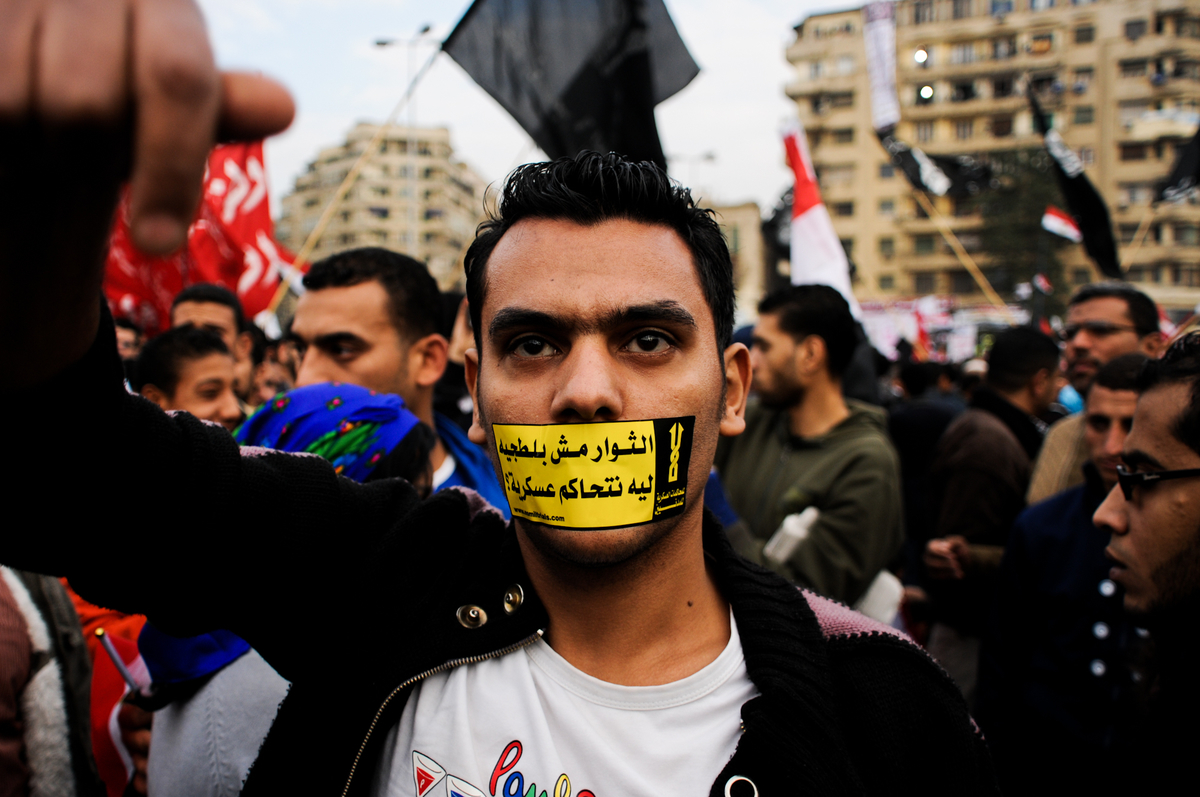CAIRO: Al-Dostour editor Ibrahim Eissa slammed charges holding him responsible for triggering public panic and causing the country substantial losses in foreign investment by spreading rumors about the president’s health.
If this is true, according to Eissa, this country clearly has an extremely weak and trifle economy [if it is] to be easily affected by two words that gets published in a newspaper regardless of this newspaper s status in terms of readership and distribution.
Which will be an evidence of the country’s failure, Eissa added.
Known for his daring anti-government and anti-Mubarak articles, Eissa didn’t shy away from criticizing the government in an editorial that bashed the state charges he is currently facing. He is accused of disturbing the peace and harming national economic interests. Eissa will stand trial next October.
His Sept. 13 editorial, which ran on the front page of the independent paper, outwardly claimed that these charges are nothing but an attempt by the state to eliminate opposition voices. This, Eissa wrote, would pave the way for the succession of power that would see President Hosni Mubarak’s son, Gamal, taking over.
But Eissa mainly focused on deconstructing the case made against him.
Eissa wondered how Egyptians would believe his paper and disregard all the national press and local television networks that, as he indicated, were day and night confirming that the president s health is perfect.
He claimed that the public prosecutor – by pressing these charges – is indirectly claiming that state-run media has lost its credibility.
Eissa also found the accusations that he spread “panic among the Egyptian public ridiculous.
With his satirical tone, Eissa said that throughout this last month, I have not seen one Egyptian in a state of panic.
People can get upset, disturbed or feel sorrow over a president s death, but to panic, I do not think so, Eissa said, adding that two ex-presidents of Egypt have passed away before and Egyptians did not panic.
But on a more serious tone, Eissa dismissed the charges all together, saying the paper has denied the rumors about the president’s deteriorating health. He admitted the paper had reported that the president is only suffering from a dysfunction in his circulatory system, a disease that is common among people of the president’s age.
He then noted that such claims have not been officially refuted or challenged, even during his investigation.
Eissa is to be transferred to Bolak Court to be trialed on Oct. 1. On Sept. 3, Eissa was summoned for questioning over his paper’s coverage of the state of Mubarak s health.
On Wednesday Sept. 5, the public prosecutor released Eissa without bail, after a seven-hour interrogation that included many journalists and representatives from several human rights organizations who voluntarily went to the prosecutor’s office to express their support for Eissa. There were around 30-35 lawyers who volunteered to represent Eissa.
The health rumor, which ran on various media outlets, was only refuted after weeks of uncertainty. Some said he was hospitalized, others claimed he had traveled for medical treatment. But the most serious rumor circulated went as far as to say that the president had passed away.
In an interview with the state-run daily paper Al-Ahram, two weeks ago, President Hosni Mubarak rebuffed the rumors. A few days later, First Lady Suzanne Mubarak spoke to the pan-Arab Al Arabiya news channel, affirming that the rumors about Mubarak s health were incorrect.
A week ago, President Mubarak met King Abdallah of Jordan, Quartet Middle East Envoy Tony Blair and Italian Foreign Minister Massimo D’Alema in Alexandria to discuss a range of issues and finally debunk recent rumors about his health. Mubarak was photographed walking into Ras El-Tin Palace in Alexandria to receive his visitors.

